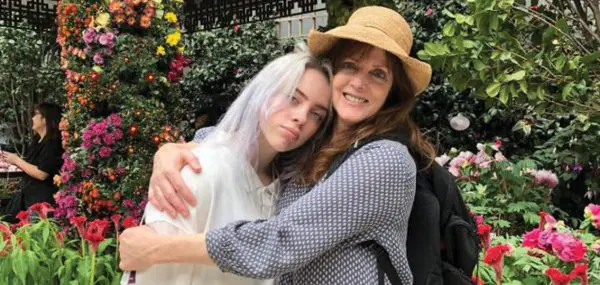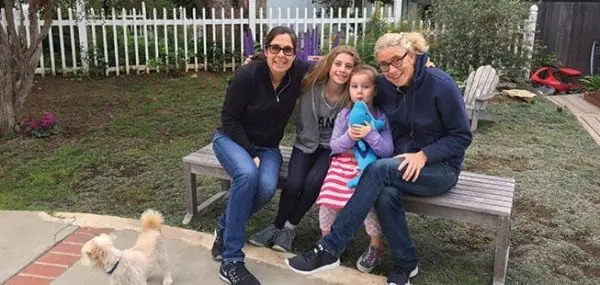An Interview with Laurie David
Q: Why is the family dinner so important to you?
David: We don’t treat the family dinner with the respect it’s due. We treat it like a pit stop where we have to quickly refuel: a break at the counter for a bite before another activity. As a result, families miss one of the most important opportunities to connect. I believe that the importance of family dinners is greater than soccer practice, art class or even going to church or temple. The research bears that out. The most important, healthiest activity that your family can do is to sit down and eat dinner together.
Q: How did this become your issue?
David: Without any research, I had lasered in on the dinner hour because I desperately wanted to have happy, cozy family moments. I worried about going through 18 years with my kids without having fun or feeling like a family. I am a producer, so I decided to produce dinner; I planned our menus and the conversation. What to talk about can be as challenging as what to eat, so I always made sure that I had fun things to do at the table. Sharing food and talking together: this is one of life’s joys.
Now that my girls are teenagers, I value the family dinner even more. Without this ritual, who knows when I would see my kids and purposely be a family? This is one of the most important things you can do to keep your family together: to build self-esteem, to get better grades in school and to teach healthy eating.
Q: Did your daughters participate in after-school activities?
David: Yes, they did, but I didn’t have to deal with sports like a lot of families do. Schools have shifted the priorities; they now schedule extracurriculars during the dinner hour. But, there are solutions. First, a parent can say no to dinnertime activities because the family dinner is a priority. Otherwise, you have Friday nights, Saturdays and Sundays. And, if dinner doesn’t work for your family’s schedule, schedule family breakfasts.
Q: Is there a magic number?
David: The more you do, the more you will get from it. The more times you sit down as a family, the benefits rise exponentially. Dial down from that ideal to what you can realistically do. I think shooting for three times a week should be a minimum goal.
Q: Is it any meal?
David: Yes. It’s more about the ritual than the time of day. It is about turning off the screens to connect with the family in the room, sit down together, talk and eat a home-cooked meal. What else does your family do to connect in that way? If you cross off your meals, then when are you being a family? When are you taking people’s temperatures? When are you laughing together? This is what all the hard work is for, so that you can slow down and share a meal together.
Q: Does it matter what you serve?
David: You should cook for your family and not for your kids. Your kids develop their palate at the table. When you cook for your family and your kids see you eating it and enjoying it, they will eat it too. My teenagers eat a whole range of healthy food: kale, quinoa, and salmon. It didn’t happen overnight or by instinct; it happened because they were exposed to it, over and over again.
On the other hand, dinner is not about putting on a meal: three courses and a homemade apple pie. If need be, it is about whatever you can throw together. But, you have to sit down and give some grace to it. You have to talk and you have to look one another in the eye and you have to turn off the TV.
Q: What topics do you discuss around the table?
David: Everything. My kids developed their social conscience at the dinner table, and in my research for my book, The Family Dinner, people reaffirmed that. It’s at the dinner table—not chauffeuring to soccer practice—that your kids learn your values, learn how to listen and learn how to debate.
Q: Do you think the family dinner is a relic of the past?
David: No. The family dinner is more important than ever because of technology. Everyone is addicted to their devices, and everyone needs a break from them. Dinnertime provides the perfect boundary and break for both your kids and you.
Q: How do your kids respond to dinner?
David: We don’t have power struggles over meals because this ritual is ingrained in them. They know they show up for dinner, Monday through Thursday. And, this is a huge commitment for my 17-year-old. Once they get their license and have access to a car, they are kind of gone. I am so grateful that my daughter and her friends are at the table. Not everyone’s 17-year-old kids are home for dinner. But, my kid is, and she is there with her friends, and it connects me. She knows she has to answer to me, show up at the table and have a conversation. She has to hear about what is going on. She is connected to a family, and I can’t tell you how critically important that is at her age.




